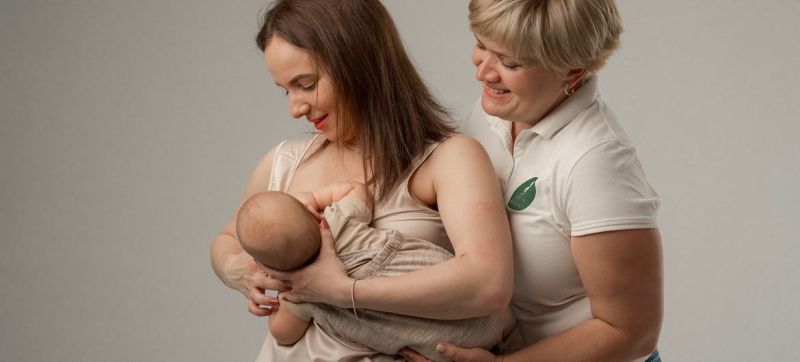
Breastfeeding mothers need support and advice, the WHO emphasizes. Almost half of the world’s babies are exclusively breastfed for up to six months Health
Over the past 12 years, the number of babies who are exclusively breastfed for up to six months has increased by more than 10 percent and reached 48 percent. Such data were presented by the United Nations Children’s Fund (UNICEF) and the World Health Organization (WHO) on the occasion of World Breastfeeding Week, which starts on August 1.
“While this significant leap brings us closer to the World Health Organization’s goal of increasing the proportion of infants who are exclusively breastfed to at least 50 percent by 2025, there are challenges that need to be addressed,” UNICEF Executive Director Catherine Russell and WHO Director-General Tedros Adhanom Ghebreyesus said in a joint statement.
They noted that hundreds of thousands of babies have been saved thanks to this method of feeding, as antibodies in breast milk protect babies from disease and death.
“When mothers get the support they need to breastfeed their babies, everyone wins. According to the latest available data, improving breastfeeding rates could save more than 820,000 children’s lives every year,” Russell and Adhanom Ghebreyesus said.
“This is particularly important during emergencies, when breastfeeding provides a safe, nutritious and affordable source of food for infants and young children. Breastfeeding reduces childhood illnesses and the risk of certain cancers and noncommunicable diseases in mothers,” they added.
Read also:
UN: Child mortality reaches historic low
UNICEF and WHO stress the need to strengthen breastfeeding support. An estimated 4.5 billion people – more than half the world’s population – do not have access to a full range of health services, leaving many women without the support they need to optimally breastfeed their babies. Mothers need education and counseling throughout the breastfeeding period.
UNICEF and WHO report that currently only half of all countries collect data on breastfeeding rates. Improving monitoring and data collection systems will help improve the effectiveness of policies in the field of breastfeeding support.
As statistics show, when governments introduce supportive measures, breastfeeding rates double. UNICEF and WHO call for increased investment in such measures, the introduction of appropriate workplace policies, and the adoption of laws restricting the marketing of breast-milk substitutes.
